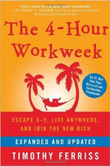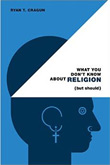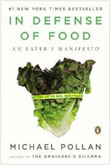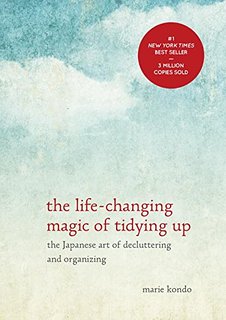The role for today’s armchair epidemiologists
Brandon Sun, February 1, 2021 - David McConkey
How many new cases were
there today? How does Manitoba’s positivity rate compare to
other provinces, to other countries? How many people have now been
vaccinated? During this pandemic, we find ourselves asking questions
about new concepts like Code Red, herd immunity, variant strains,
bubbles and “flattening the curve.” We have become armchair
epidemiologists. And that’s a good thing.
No wonder we eagerly read about the pandemic. We are naturally
concerned about suffering and threats to our health and economic
security and to that of our families and others.
Citizens are challenged during this time. We are required to obey
the laws and public health regulations. We are morally obligated to
act with kindness and courtesy when interacting with our fellow
citizens. We are obliged to be responsible in our consumption of –
and participation in – media. We need to be careful of what ideas we
spread on social media and not contribute to what has been labelled
an “infodemic.” And we must nurture our own mental health. No
surprise that too much surfing the net for dreary news is known as
“doomscrolling.”
We lay people also have a responsibility to be skeptical of what our
government leaders and health experts tell us. We have seen where we
have not been told the truth about another health crisis, the
illicit use of dangerous drugs. We were falsely assured for decades
as our leaders pretended to know what they were doing and that the
war on drugs was working.
And the experts have sometimes been less than honest with us during
this pandemic. At first they told the public that we didn’t need to
wear masks. This advice was not because of a concern for our health,
but because of their concern that the public would buy up masks
ahead of health-care providers.
 In trying to see a bigger picture,
I benefited from reading Apollo's Arrow: The Profound and Enduring Impact
of Coronavirus on the Way We Live. The book is by American
physician and sociologist Nicholas Christakis. Of course, changes
are happening so quickly that the book has been partly outpaced by
events. But Apollo's Arrow excels at providing a
background to the nature of pandemics and humanity’s response to
them over the centuries.
In trying to see a bigger picture,
I benefited from reading Apollo's Arrow: The Profound and Enduring Impact
of Coronavirus on the Way We Live. The book is by American
physician and sociologist Nicholas Christakis. Of course, changes
are happening so quickly that the book has been partly outpaced by
events. But Apollo's Arrow excels at providing a
background to the nature of pandemics and humanity’s response to
them over the centuries.
One thing I learned from the book is how public health measures like
better hygiene contributed much more than medicines and vaccines to
defeating diseases such as measles, typhoid and scarlet fever. I
wonder if a fuller understanding of this would have better prepared
us earlier on to adopt behaviours like wearing masks.
The book’s title recalls an ancient Greek myth. The god Apollo
shoots an arrow that lets loose a plague among the people.
The experience of this pandemic highlights the importance of science
and expertise. A Globe and Mail investigation noted that Canada
had developed a world class pandemic monitoring system in the 1990s.
Then the Harper government downgraded the role of scientists and the
Trudeau government accelerated that process.
“Canada unplugged support for its pandemic alert system [in 2019],”
the newspaper reported. “Experienced
scientists were pushed aside, expertise was eroded and internal
warnings went unheeded.”
When the pandemic started, Canada was caught flat footed. Our health
officials at first told the public we had nothing to worry about.
Meanwhile, other countries – like Australia, New Zealand, South
Korea and Thailand – were already taking action against the new
disease.
One big problem is that the pandemic puts pressure on folks from
several directions at once. The editor of the Winnipeg Free Press, Paul
Samyn, last week described the stress he is experiencing from
personal as well as workplace anxiety. And covering the pandemic
story has meant contending with both conspiracy theories and the
arrogant attitude of Manitoba officials towards the newspaper.
“That's why talk of fake news surrounding COVID-19 has been so
infuriating,” Samyn wrote. “That's why those in power taking
shots at the questions we ask, the accountability we seek, the
headlines the public deserves, has been so frustrating.”
Yet as overwhelming as the pandemic is, we must remember to consider
other issues as well. During 2020 there were about 800 COVID deaths
in B.C. But deaths from drug overdoses in the province were 1,600.
During a pandemic, citizens face great challenges. Citizens must be
respectful but skeptical of our political leaders and health
experts. Citizens must be on guard against hoaxes and conspiracy
theories. And citizens must seek out a larger perspective and
support varied sources of information, including libraries and
investigative journalism.
That is quite the role and responsibility for today’s armchair
epidemiologists.
See also:
The Pandemic: Reflecting
on Big Questions
Here's an Idea: Raise Our Taxes to Pay for Pandemic
Our Leaders Must Tell Us the Truth About the Pandemic
A Local Journal of the 1918 Flu
Appreciate Everyday Goodness All Around Us
Popular Right Now:
- 15 Tips for Healthy Eating
- Quality of Life, Well-Being Research Something We Can Feel Good About
- Diets Don't Work, So What Does?
- Political Contributions: Top Ten Canadian Tax Tips
- Nestle Fitness 14 Day Weight Loss Program; What is Wrong Here?
- Charitable Donations: Top Ten Canadian Tax Tips
Must Read Books:
The 4-Hour Workweek:
Escape 9-5, Live Anywhere, and Join the New Rich

What You Don't Know About Religion (But Should)

In Defense of Food:
An Eater's Manifesto

The Life-Changing Magic of Tidying Up:
The Japanese Art of Decluttering and Organizing

Don't
Even Think About It:
Why Our Brains are Wired to Ignore Climate Change

Like This? Share It!
Press Ctrl + D to Bookmark!
